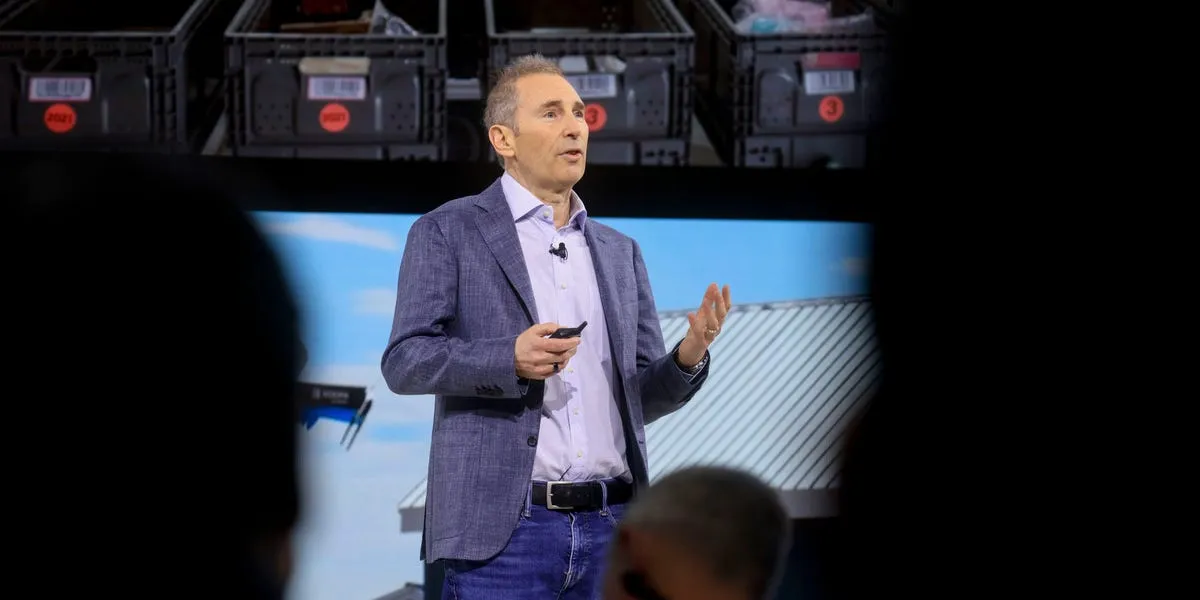
In a recent communication to Amazon employees, CEO Andy Jassy revealed that the company's corporate white-collar workforce is expected to shrink over the next few years due to advancements in artificial intelligence (AI). He cited efficiency gains as the primary motivation behind this shift. However, the response from Amazon's white-collar workers has been overwhelmingly negative, as they took to internal Slack channels to express their discontent with Jassy's message, according to reports from Business Insider.
Messages shared in various internal channels indicated widespread criticism among Amazon's employees. Many expressed concerns regarding Jassy's leadership and his unabashed promotion of AI. Some employees called for a fundamental shift in the company's mindset, warning about the potential risks associated with an overreliance on AI technologies. "There is nothing more motivating on a Tuesday than reading that your job will be replaced by AI in a few years," one employee remarked in Slack.
Interestingly, not all feedback was negative. A few employees voiced support for Jassy's approach, suggesting that the transformation could streamline middle management roles significantly. "At least he said the quiet part out loud," one employee commented. "We all knew it, but now it's clearly part of the plan." This mixed response highlights the divide among Amazon's workforce regarding the integration of AI.
A significant point of discussion revolved around how AI should be integrated into the corporate structure. Many employees noted that the projected 50% productivity boost from AI offers two pathways for companies: either reduce the workforce while maintaining output or retain the current team and expand business operations. Critics argued that Amazon is opting for the former, shrinking the workforce while pursuing efficiency.
One employee emphasized the need to reframe AI not just as a tool but as a potential partner or colleague in the workplace. "We need to lead the change in reframing AI as partners rather than replacements," they stated. This perspective contrasts with Jassy's vision, which some believe focuses primarily on reducing headcount rather than enhancing customer satisfaction.
Employees also raised alarms about the implications of relying heavily on AI without adequate safeguards. While some found AI-driven tools beneficial, others warned that AI is not always a reliable source of information, which could lead to misguided decisions. "It's dangerous, and it will have real consequences," one employee cautioned, highlighting the potential pitfalls of using AI to address issues it may have created in the first place.
Additionally, there were fears that Jassy's memo could foreshadow impending layoffs. One employee expressed that any communication from Jassy induces "instant deep dread," while another criticized his ongoing focus on cost-cutting, suggesting that it contradicts the company's "Think Big" philosophy. "This seems to be part of a continual trend that our CEO doesn't seem to have a vision for the company other than 'do what we do today cheaper, and also AI will happen,'" they wrote.
Cynicism also permeated the discussions regarding senior leadership's roles in the context of AI-driven workforce reductions. Employees questioned why the focus on AI-related layoffs predominantly targets lower-level workers while the ranks of senior executives remain largely untouched. Notably, Amazon's senior leadership team has expanded under Jassy's management, raising questions about the future of job security for regular employees.
As Amazon navigates the complexities of AI integration within its corporate structure, the reactions from its workforce serve as a critical reminder of the potential challenges and concerns that come with such transformative changes. The debate over AI's role—whether as a partner or a replacement—continues to unfold, reflecting the broader implications for the future of work at Amazon.